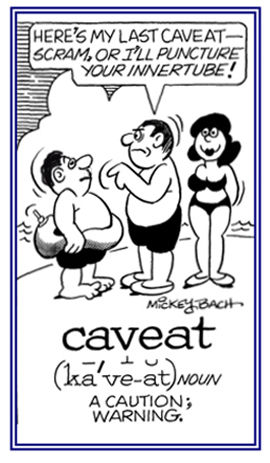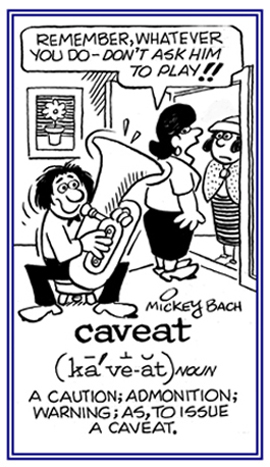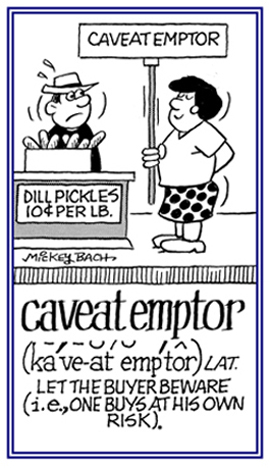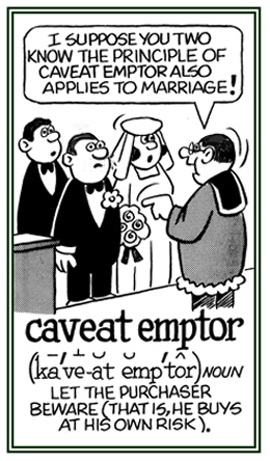2. A formal notice filed with a court or law officer to suspend a prosecution until after the person who is filing is given a hearing: Susan’s lawyer submitted a caveat asking for a break in the trial giving her a chance to testify and to give evidence as to what really happened before the legal proceedings continue.


Go to this Word A Day Revisited Index
so you can see more of Mickey Bach's cartoons.
The principle rule that a buyer cannot assume that his or her purchase will be exactly as hoped for or promised.
The full version is: Caveat emptor, quia ignorare non debuit quod jus alienum emit. "Let a purchaser beware, for he ought not to be ignorant of the nature of the property which he is buying from another party."
The well-known shorter version, Caveat Emptor applies to the purchase of land and goods, with certain restrictions, both as to the title and quality of the thing sold. Out of the legal sphere and as a non-legalistic usage, the phrase is used as a warning to a buyer regarding any articles of doubtful quality offered for sale.
This legal terminology means, the purchaser or buyer, not the seller, is responsible for protecting the himself or herself in the transaction.
Caveat emptor is the opposite of "caveat venditor" in that, according to Eugene Ehrlich: Whereas caveat emptor has a long history in common law, "caveat venditor" is just now coming into prominence as a result of the consumer-rights movement.
Under "caveat venditor", the seller is assumed to be more sophisticated than the purchaser and so he or she must bear responsibility for protecting the unwary purchaser.
The purchaser, emptor, is a child who must be protected against his or her own mistakes, while the seller, "venditor", is the big, bad wolf lying in wait for Little Red Riding Hood. So while the two rules struggle for preeminence, attorneys gleefully watch—and litigate.


